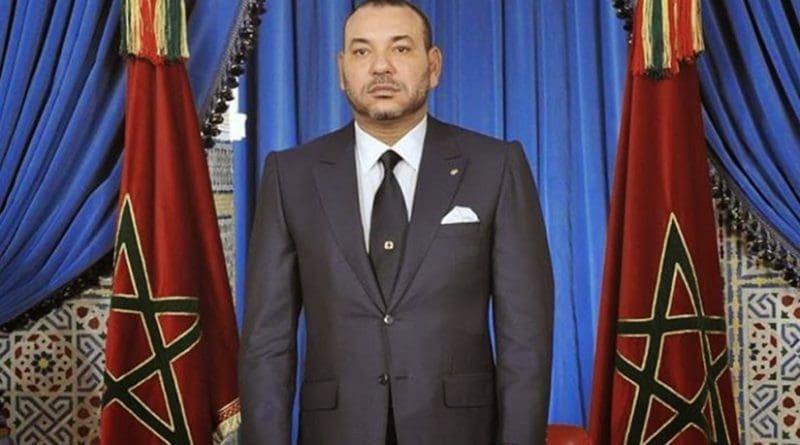Mohammed VI Mosque In Dar Es Salam Launched – OpEd
King Mohammed VI accompanied by the Tanzanian Prime Minister Kassim Majaliwa, launched the construction works of a new mosque in Dar es Salaam that will bear the name of the Moroccan monarch “the Mohammed VI Mosque” at the request of His Eminence Mufti Sheikh Abu-Bakr Ibn Zubayr Benali, President of the National Muslim Council of Tanzania, who expressed the need for a mosque and its facilities in Dar es Salaam.
The area of this religious and cultural landmark is 7,400 square meters; it includes a prayer room that accommodates more than 5,000 worshipers, a library, a conference hall, administrative facilities, a parking lot and green spaces.
On this occasion, HM the King offered 10,000 copies of the Holy Koran to the National Muslim Council of Tanzania.
On this occasion a cooperation agreement in the field of religious affairs was concluded and signed between the Mufti and the Moroccan Minister of Religious Endowments and Islamic Affairs Ahmed Toufiq. It covers traditional education, religious foundations, construction and management of mosques, exchange of experiences, and other forms of cooperation which aim to preserve authentic Islamic values and help prevent all forms of deviation and extremism.
At his arrival at the mosque building site, the sovereign was greeted by the Mufti Sheikh Abu-Bakr Ibn Zubayr Benali, the governor of Dar es Salaam, the city’s mayor and other Tanzanian religious figures. The ceremony was absolutely colorful given the excitement of the people in the location. The community was jubilant.
Moroccan spiritual diplomacy has been very successful in the whole African continent due to the country’s historic Maliki School through Sufi channels and methods of reaching worshipers in Africa. The Tijaniya sufi order widely operating in West Africa and other Sufi orders – including the Qadiriyya and Chadiliya orders – have gained large numbers of devotees who identified heavily with Morocco.
Sufism attracts more young Africans because of its tolerance, due to the easy interpretation that gives to the Qur’an, its rejection of fanaticism and its embrace of modernity. Young people are the principles of” beauty” and” humanity”. Sufism balanced lifestyle that allows them to enjoy arts, music and love without having to abandon their spiritual or religious obligations. Sufi orders exist throughout Morocco. They organize regular gatherings to pray, chant and debate timely topics of social and political, from the protection of the environment and social charity to the fight against drugs and the threat of terrorism.
In addition, focusing on the universal values that Islam shares with Christianity and Judaism (as the pursuit of happiness, the love of the family, tolerance of racial and religious differences and the promotion of peace) Sufi gatherings inspire young people to engage in interfaith dialogue.
Sufism is so diffuse in Moroccan culture that its role cannot be properly understood if reduced to a sect or a sacred place. People get together to sing Sufi poetry, the primordial essence of the human being, the virtues of simplicity and the healing gifts of Sufi saints such as Sidi Abderrahman Majdub, Sidi Ahmed Tijani, and Sidi Bouabid Charki, the spiritual masters revered by peers and disciples for having attained spiritual union with God during their earthly lives.
Apparently Morocco’s religious authority – Imarat Lmouminin – is highly venerated by many Africans. In all his trips in Africa, King Mohammed as Commander of the Faithful, receive all leaders of major Sufi orders. In all his trips in Africa, he provides thousands of copies of the Quran issued by the Mohammed VI Foundation for Holy Quran Publishing to be distributed mosques and other major Muslim institutions. In short, a credible and very successful spiritual diplomacy led by the King to promote a tolerant Islam that teaches respect, love to other religions and contribute efficiently to counter all extremist voices who unfortunately seem to gain ground in some countries in Africa. The aim is to make sure Islam’s open-minded values of moderation, tolerance and coexistence helps to promote security, stability and development in Africa.

